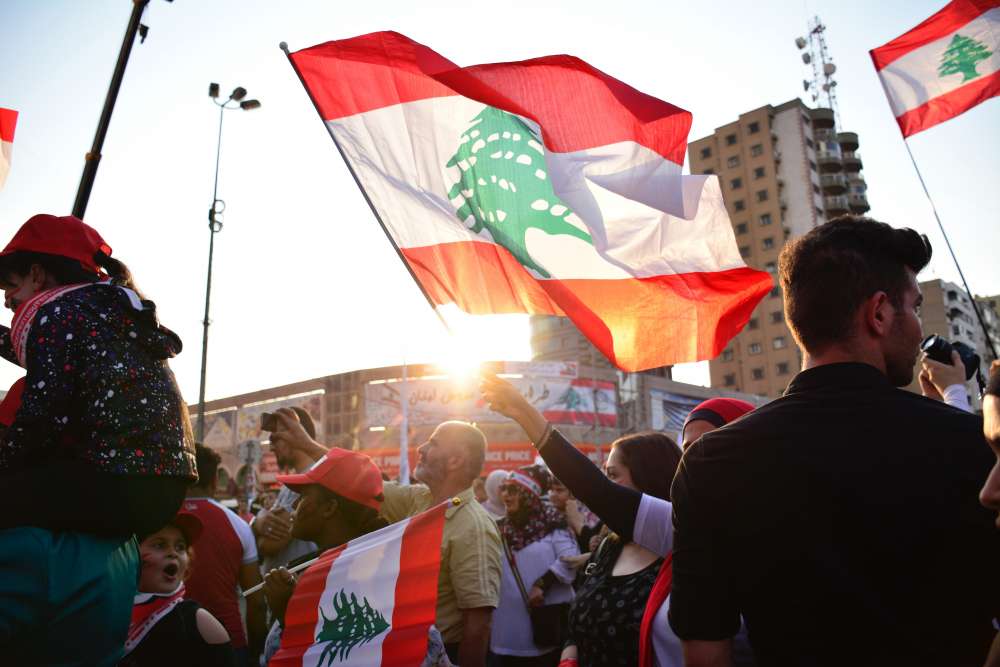While much of the world’s attention was absorbed by Russia’s attack on Ukraine and other ongoing crises, Lebanon held its parliamentary elections in May amid deepening economic devastation. Roughly a dozen reform-oriented candidates from new parties managed to enter the 128-member parliament. While this in itself will not bring about any rapid change in the country, it does open up an opportunity for new momentum to overcome the entrenched structures at the root of the crisis. Democratically-minded international actors can help by consistently attaching conditions to offers of financial assistance and by showing the courage to support change.
For a brief moment in 2019, when Lebanon’s house of cards built out of excessive state debt dramatically collapsed, many things appeared possible. A cross-sectarian protest movement mobilized with far-reaching demands for reform, support for which extended beyond Beirut’s student neighborhoods. But violent repression, political discrediting and COVID-19 measures brought the protests to a halt. The Beirut port explosion intensified the feeling of powerlessness, and the economic breakdown exacerbated the population’s dependence on political patronage.
Against this backdrop, each parliamentary seat won is a considerable success and also an indication of Lebanon’s continued potential as an example for the region. More than 10 years after the Arab Spring, democratic progress in the Arab world is exceedingly rare, with even hopeful stories like Tunisia’s having taken a somber turn. In Lebanon, however, important innovations of the protest movement are now again shining brighter – for example, new “alternative media organizations” that offer independent journalism. Much now depends on whether the new parliamentarians can break the vicious circle of disillusionment through displays of integrity and responsible action.
However, this kind of gradual change takes time and will not solve the country’s acute problems. Modern life is progressively collapsing: for instance, electricity is now almost exclusively available from generators at exorbitant prices. Lacking prospects and a fear of unpredictable developments are a major problem –those who have the opportunity often leave the country.
So far, overcoming the crisis has largely failed on account of tangible interests. A three-billion-dollar aid package from the International Monetary Fund has been on the table for months, but the Lebanese political leadership has stubbornly resisted basic conditions such as auditing the central bank or meaningfully reforming banking secrecy laws. After years of international partners buying into flimsy promises, including at the CEDRE conference, there is obvious speculation that Europe in particular will buckle under the scenario of another “failed state” in the Levant.
The risk of key actors’ positions crumbling indeed appears real. In particular, France – which, as the former colonial power, exerts a great deal of influence on Lebanese matters internationally – seems latently concerned about overly-disruptive change in the country. French President Macron withdrawing for a closed-door exchange with Lebanon’s leadership elite during his Beirut visit in the “revolutionary” days of 2019 was emblematic of Paris’ preferred, inherently conservative approach. However, it will take more than cosmetic changes for the country to break out of its pattern of recurring and ever-deepening crises.
Democratic publics should therefore push their leaders to steadfastly insist on attaching stringent and verifiable conditions to any disbursement of financial support in Lebanon. Importantly, this stipulation would not be an external agenda foisted on the country, but rather echo a consistent demand heard from a wide range of Lebanese civil society actors. As one activist put it to us in a recent conversation in Beirut: “You have applied conditionality so often for the wrong reasons, here you can do it for the right reasons for once.” Beyond this, more courage to support change should also manifest itself in the implementation of targeted sanctions against organizations and individuals who demonstrably undermine democracy and the rule of law in Lebanon, a framework for which has already been adopted at the EU level.
Such steps are not without risk – it is possible that cornered political leaders could try to further instrumentalize the large number of Syrian refugees in the country, for example, or to close ranks by means of a skirmish with Israel. International actors must prepare for such scenarios. Meanwhile, the flip side of robust conditionality is to maintain the offer of substantial and effective support – if relevant reforms are verifiably enacted. Meanwhile, beyond emergency humanitarian aid, Europe should intensify support for Lebanon’s democratic civil society, especially where its activities – such as those of investigative journalists or transparency NGOs – directly complement international pressure. The tried-and-true card of discrediting such groups as foreign “puppets” will be pulled either way – regardless of how much international support these initiatives received in reality.
Much has been written in recent months about Lebanon’s desolate state of affairs, but that makes it all the more important to also recognize the merits of even small advances and to expand them into new opportunities. For all of the caveats and risks of the current situation, there is also much to be gained for the country and the region.
An abridged version of this commentary was published in German in Frankfurter Rundschau on August 8, 2022.








